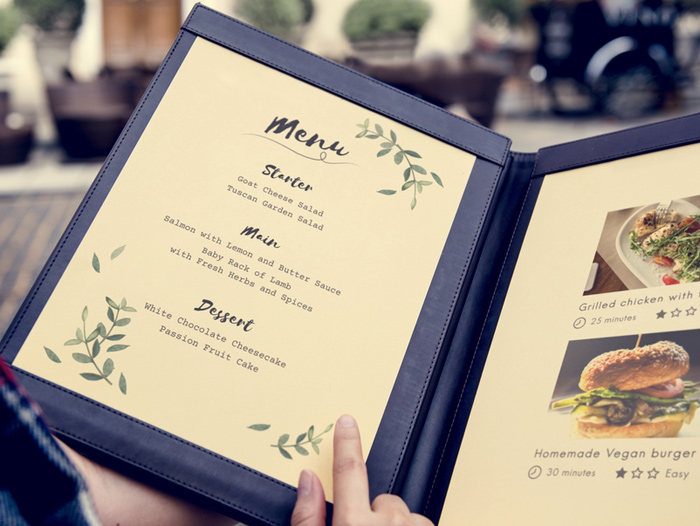Evidence Found of Seafood Fraud in Nearly 30% of Restaurants in Louisiana’s Capital City
December 23, 2024 | 5 min to read
In Baton Rouge, SeaD Consulting has revealed that nearly 30% of sampled restaurant dishes misrepresent their shrimp, falsely advertising imported shrimp as local Gulf shrimp. This mislabeling could lead to significant economic losses for Louisiana’s shrimping communities, with potential revenue exceeding $26 million annually if sourced locally. New labeling laws effective January 1, 2025, aim to enhance transparency, while SeaD advocates for genetic testing to ensure compliance and authenticity in seafood sourcing.

New Labeling Laws in Effect Jan 1, 2025 are a Start, Genetic Testing and Enforcement Can Make it Stop
Baton Rouge, LA – In the first of a series of restaurant investigations in the state of Louisiana, starting with the capital city of Baton Rouge, SeaD Consulting has uncovered disturbing findings about the shrimp being served. After sampling menu items at 24 restaurants randomly chosen across the city, SeaD Consulting’s investigators discovered that nearly 30% of the dishes sampled—more than one in four—were misrepresented. Seven out of the 24 restaurants were misleading customers by advertising shrimp as Gulf shrimp when, in fact, it was imported.
“Consumers in Baton Rouge, and Louisiana in general, take pride in our local shrimp industry, which is an integral part of our economy, culinary identity and heritage. However, our research shows that many restaurants are serving shrimp that isn’t local or Gulf-caught, despite advertising it as such,” said David Williams, founder of SeaD. “This undermines both the trust of consumers and the livelihoods of local shrimpers who work hard to provide fresh, Gulf-caught shrimp.”
The Scope of the Issue and Why it Matters
A 30% shrimp fraud rate, if extrapolated across Louisiana’s entire restaurant market, could have significant economic consequences.
With an estimated 2,428 restaurants across the state serving shrimp, it is likely that over 70,000 pounds of imported shrimp are misrepresented as Gulf shrimp every week. Over the course of a year, this mislabeling could (very conservatively) amount to 3.66 million pounds of processed shrimp, which, if captured by local shrimpers, could generate upwards of $26.1 million in additional revenue for Louisiana’s shrimping communities
The Impact on Louisiana’s Shrimping Communities
The economic implications of mislabeling extend far beyond consumer trust. If these misrepresented shrimps were to be sourced locally, they would provide a much-needed economic boost to Louisiana’s shrimping industry. Not to mention the community impact of gas, ice, and supplies sold to the boats and the processing jobs that have been lost. The financial decimation of the towns of Delcambre, LA and Dulac, LA can be directly attributed to this economic fraud.
“Louisiana shrimpers are the backbone of our seafood industry,” said Andrew Blanchard, president of the Governor’s Shrimp Task Force. “The opportunity to capture just a fraction of this mislabeling—a conservative estimate of 3.66 million pounds of shrimp annually at a wholesale price of approximately $5 per pound—would inject millions of dollars into local communities, supporting families, fishermen, and the entire seafood supply chain.”
The Call for Transparency and Law Enforcement
SeaD and Louisiana lawmakers are calling for greater transparency in the seafood industry, especially in terms of labeling and sourcing practices. SeaD urges restaurants, suppliers, and consumers to demand accurate information about where the shrimp on their plates is coming from.
A new law goes into effect January 1, 2025 that puts restaurants in violation of sanitary code for not making customers aware that they are eating foreign imports vs. local wild-caught Gulf shrimp. Senate Bill 166 leading to Act 148 states that: 5.5.4.B.(1) Any food service establishment that uses a menu as a standard business practice and sells or provides cooked or prepared crawfish or shrimp that originate outside of the United States shall display on all menus the country of origin of such crawfish or shrimp, or denote that the crawfish or shrimp are imported, in letters no smaller than the same size, font, and shade as the product being offered, immediately adjacent to the menu listing of the seafood item being sold. In lieu of this requirement, the notice shall be paper clipped to the menu, with the same location, size, font, and shade restrictions required when the notice is listed directly on the menu.
The law is a great start, but SeaD is also advocating for enforcement of regulations through ongoing genetic testing of restaurants to ensure that restaurants and seafood vendors provide accurate, truthful information about the origin of their products. SeaD developed the Rapid ID Genetic High-accuracy Test (RIGHTTest) that can detect seafood species in conjunction with Florida State University in response to the ongoing issue and lack of testing. The RIGHTTest is not only extremely accurate, but also relatively inexpensive and portable with a turnaround time for detection of only two hours (current testing is costly and slow as it takes days instead of hours, delaying enforcement measures)
Restaurants Doing the Right Thing
The Baton Rouge restaurants SeaD found to be selling Gulf Shrimp as advertised are as follows:
- Bistro Byronz-William Grove
- Cork’s Cajun Fried Fish & Shrimp
- Crawfords
- Dempsey’s
- Geaux Fish Market
- Jubans Restaurant & Bar
- Mike Anderson’s Restaurant
- Off the Hook
- Parrain’s Seafood Restaurant
- Phil’s Oyster Bar
- Po Boy Express
- Rice and Roux
- Roux 61
- Sammy’s Grill
- Stabs Prime
- The Chimes
- Willies
About SeaD Consulting
SEAD (Seafood Development) Consulting works with diverse stakeholders — seafood producers, academia, governmental agencies, and environmental organizations — to foster innovation and sustainability throughout the sector, bridging commercial fishery science with testing and processing technologies to combat seafood mislabeling and substitution fraud.
For more information, please visit www.seadconsulting.com or contact us at sead@seadconsulting.com. #SEADConsulting
Consumers are encouraged to contact SeaD Consulting https://www.seadconsulting.com/contact-us to report suspected fraud in their area.
